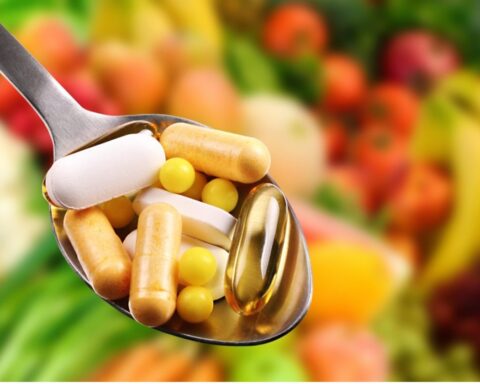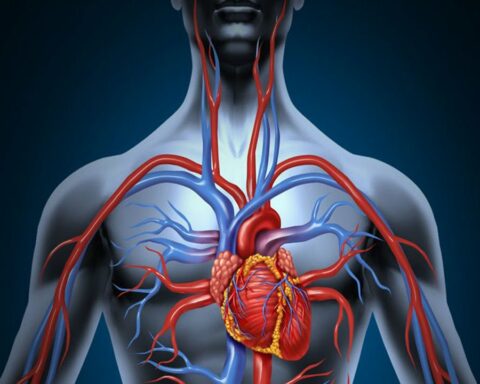Metabolism is the backbone of human health. Body metabolism requires various nutrients and vitamins for proper functioning.Several vitamins arerecommended to promoting efficient body metabolism.
A good metabolism means a healthy body. Low metabolism results in various health problems such as constipation, depression, headache, thin hair, and fatigue.Various factors can lead to low metabolism, including hormonal diseasessuch as overreactive thyroid and diabetes. However, vitamins boost metabolismand limit these symptoms. Moreover, there are various types of vitaminsobtained from different sources. These include; vitamin A,C, D, E, K, B vitamins, thiamine, and riboflavin.Vitamins are distributed in various foods, such as fruits, vegetables, milk, meat, cereals, and sea fish.
Types of vitamins that boost metabolism
Vitamin B6
Vitamin B6 is one of the significant vitamins that boost metabolism by providing energy and neurotransmitters that promote mood. You can obtain vitamin B6 from oats, pork, fish, peanuts, soya beans, wheat germ, and poultry. The human body cannot produce vitamin B6. Therefore, it is important to focus on a diet rich in vitamin B6 to improve metabolism.A deficiency of these essential nutrients lowers metabolic processes leading to several health problems,such asweak immune system, tiredness, seizures, mood changes, sore lips, high homocysteine, pain, tingling in the hands, and skin diseases.Many processed foods lack the right number of vitamins, even though the labels indicate their inclusion. It is advisable to stick to the home prepared food. Home-cooked foodis free from harmful chemical effects compared to the processed foods that might have unwanted ingredients. Choose what you eat wiselyas itcontributes to body metabolism.
Vitamin B12
Vitamin B12 is another important metabolism booster thatpromotes metabolism by providing energy to the body.For instance, it converts food into energy to be used in metabolism. You can obtain it from milk, cheese, fish, meat, eggs, and some cereals. A deficiency of vitamin B12 impairs metabolism processes, leading to various health problems, such as pale skin, shortness of breath, a smooth tongue, nerve problems, vision loss, constipation, and weakness.Many people have associated these symptoms with other factors that lead them to take irrelevant drugsto relieve them in vain.If you experience these symptoms, visit a dietitian and explain your case before starting drugs that may have side effects.
Vitamin D
There is an open relationship between vitamin D and increased metabolism. For instance, it stimulates the intestines to absorb calcium and phosphorus. It also increases renal reabsorption of calcium into the distal tubule.A deficiency in vitamin D results in several health problems, such as nausea, increased thirstand urination, constipation, weakness, confusion, and ataxia. There are various sources of vitamin D, such as liver, egg yolks, oily fish, fortified fish, and red meat.Eatinga diet with one of these meals helps boost metabolism. There is a processed vitamin D syrup administered to boost metabolism. However, this alternative syrup comes with many risks, especially when taken in a high amount.These side effects depend on the frequency of intake.It is advisable to stick to natural sources with no side effects.
Vitamin B complex
As the name suggests, the vitamin B complex produces many vitamins, such as B-1, B-5, B-6, B-12, B-3, andB-2. This group of vitamins plays several important roles in metabolism; for example, they improve the digestion process, immune system, nerve functioning, transportation, and help absorb other nutrients. A deficiency of these vitamins results in many health problems, such as heart disease, high blood pressure, high glucose levels, brain ailments, constipation, diarrhea, vomiting, and muscle weakness.There are various sources of vitamin B complex, including milk, cheese, eggs, meat, liver, kidney, fish, dark green vegetables, and processed syrup. VitaminB complex is a must-add to your diet for a healthy and stable body. These nutrients will help you improve your metabolism, leading to healthy living.Take these vitamins with the right amounts being considered. A high intake of vitamin B complex can lead to health problems, such asnerve damage, diarrhea, constipation, and nausea.
Coenzyme Q10
Coenzyme Q10 vitamin is found in all body cells. It helps to stimulate body mitochondria by converting foods into energy. Foods- rich in coenzyme Q10 include; organ meats, pork, chicken, beef, and muscle meats. Diet is an important factor to focus on when you want to stay healthy. It is important to identify the good foods that contain essential nutrients to boost metabolism. A deficiency of this vitamin causes frequent fatigue and muscle weakness. In addition,high consumption of these nutrients may cause health problems, such as nausea, diarrhea, and headache.Pork, chick, and beef, and provide the most Coenzyme Q10 nutrients.
Conclusion
Vitamins are proven to be the most important nutrients that fuel the body’s metabolism. They are found in a variety of foods and minerals. They can also be processed in the lab and administered through syrups to boost metabolism.Moreover, metabolismfailure increases the risks of health disease.
- Products That Assist with Stress Relief - September 21, 2023
- TRÈFLE – THE ROAD TO THE 15TH - July 29, 2023
- Lovingly thought out educational toys - July 5, 2023









